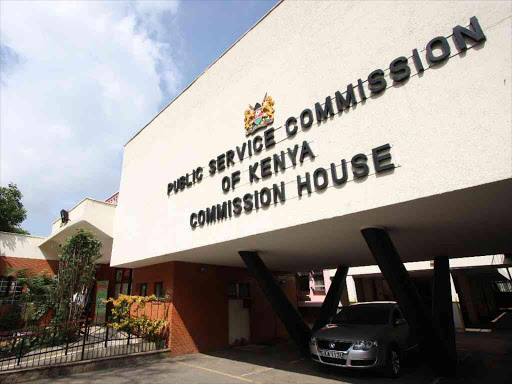New Bill seeks to prevent job losses in public sector amid civil service downsizing plans

The Public Service Human Resources Management Bill 2024, proposes redeployment or retraining for employees whose roles become redundant.
A new Bill currently before the National Assembly aims to shield public servants at both national and county levels from job losses if their positions are abolished.
The Public Service Human Resources Management Bill 2024, sponsored by Runyenjes MP Eric Muchangi, proposes redeployment or retraining for employees whose roles become redundant.
More To Read
- Government falls behind on Sh1.2 billion pension contributions
- Nairobi orders staff to submit academic, professional records by January 15
- Public service pension contributors exceed 500,000 as fund grows
- Audit flags leadership vacuum at Garissa University since 2022
- Outgoing NCIC faces scrutiny over last-minute recruitment of 22 staff
- Kenya School of Government cancels hundreds of fake certificates in major crackdown
The proposed legislation seeks to address concerns over job security, particularly in light of government measures to reduce the size of the civil service, which employs nearly one million workers and incurs an annual wage bill exceeding Sh1 trillion.
This comes as employees of the now-defunct National Health Insurance Fund (NHIF) face uncertainty following the transition to the Social Health Authority (SHA). Despite assurances of job safety, there is no binding guarantee that NHIF staff will retain their positions under SHA or be deployed to other public bodies.
"The Bill seeks to reposition the public service so that it can better serve the people of Kenya in order to facilitate the country's development in line with its aspirations," Muchangi, who chairs the National Assembly’s Labour Committee said.
Clause 13 of the Bill stipulates that no public servant should be removed or retired due to the abolition of their position without the public service entity exploring alternatives such as retraining or redeployment.
Additionally, public service entities will be required to establish clear guidelines for the creation and abolition of positions, in line with the Public Service Commission Act.
Law amendments
To harmonise human resource management within the public service, the Bill targets amendments to seven laws, including the State Corporations Act, Labour Relations Act, County Governments Act, Public Finance Management Act, Office of the Attorney-General Act, Public Service Commission Act, and Foreign Service Act.
"The Bill seeks to provide uniform norms and standards for managing human resources to support efficient public service delivery," Muchangi said in the memorandum accompanying the Bill.
Among its provisions, the Bill proposes a leave of absence for up to three years, extendable by another three years, with a clear restriction that such leave cannot be used for political activities.
It also aims to address inconsistencies in existing laws and policies that, according to the Bill, have hindered efforts to transform the public service and the country.
One of the key reforms includes the regulation of appointments in acting capacities. Under the proposed law, a public servant cannot be appointed in an acting capacity unless they meet all the required qualifications.
Clause 21 states that such appointments should last a minimum of 30 days and a maximum of six months, during which the recruitment process for a substantive office holder must be concluded.
If the recruitment process is not finalised within six months, the Bill allows for another public officer to be deployed in an acting capacity for an extended period.
This provision aims to address issues where public agencies, operating outside the oversight of the Public Service Commission, have had individuals serving in acting capacities for prolonged periods without formal appointments.
The Bill’s introduction reflects efforts to reform human resource practices within the public service to ensure efficiency and fairness while safeguarding employees’ rights amidst structural changes.
Top Stories Today













































